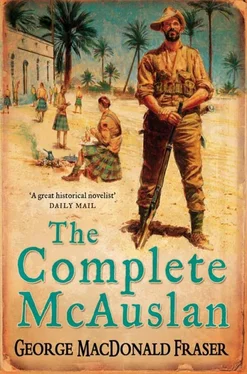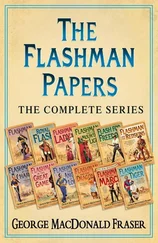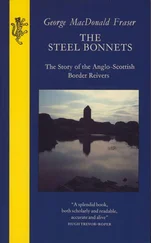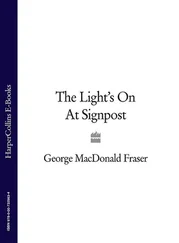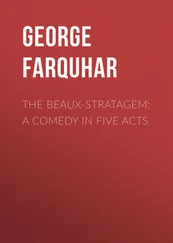No one remembers the General leaving later in the day, although the Colonel said he believed he was there, and that the General cried with emotion. It may have been so, for the inspection report later congratulated the battalion, and highly commended the pipe-sergeant on the standard of the officers’ dancing. Which was a mixed pleasure to the pipe-sergeant, since the night’s proceedings had been an offence to his orthodox soul.
“Mind you,” he would say, “General MacCrimmon had a fine agility at the pas-de-bas, and a decent sense of the time. Och, aye, he wass not bad, not bad … for a Campbell.”
I had two grandmothers, one Presbyterian, the other pagan. Each told me stories, in her own way. The pagan, an incredibly old, bright-eyed creature from the Far West, peopled the world with kelpies and pixies and giants, or fair cold princesses and their sea-rover lovers; these were the tales her people had brought in the long ships centuries ago. And sometimes she would tell of our more immediate mainland ancestors, of the Red Fox and Robin Roy Macgregor and the caterans of the Highlands and the dirty tricks they played each other. But always her stories were full of passion and fighting and magic and cunning stratagems, and above all, laughter. Watching her old, wrinkled face, so eager, and the play of her ancient thin hands, it was easy to believe that her own grandmother had known a woman who had seen the men coming back from the ’45, thrusting their broadswords into the thatch for another time, and stamping while the tears ran down their faces. Afterwards she would give me a penny or a potato scone, which she baked with great skill.
My other grandmother had only one story, the point of which eludes me still. She was a Glencoe MacDonald, strong and of few words, worshipping a stern God on whom she kept a close eye to see that he didn’t get up to anything the Presbytery wouldn’t have approved of, like granting salvation to Catholics and Wee Frees. She frightened me, for she was hard and forbidding and insisted that we walk miles to church on Sundays. On these walks I was naturally forbidden to take my ball; on weekdays I could dribble it along beside her, and on one occasion she even condescended to kick it, watching it with a cold eye to see that it rolled straight. It did. And it was on that occasion that she told me the story; the sight of a distant train puffing along the hillside had brought it to mind.
It appears that on the West Highland railway near Tyndrum there was a steep hill. A train of cattle in open trucks was steaming up it, when a coupling broke and the trucks began to run back downhill. In the rear truck was the elderly guard and a young assistant, and the guard, as the train gathered speed, cried to the young man:
“When you see me shump, you shump too. Better to be killed on the bank than smochtered among the cattle.”
They had both jumped, and the young man broke his ankle and the old guard smashed his watch, and the train thundered on to the bottom of the hill and glided gradually to a stop in perfect safety.
At this point my grandmother paused, and I waited for the punchline. She stood gazing out across the glen with that stony look that she would fasten on the minister if he looked like letting up in his sermon after a mere forty minutes; her mind was away somewhere else.
“And that,” she said impressively at last, “is what happened on the West Highland railway.”
I thought it was a pretty feeble story then, and it doesn’t look much better in retrospect, although I have a feeling she saw a point to it which she didn’t explain. But both the story and that grim old lady who told it come back to me every time I smell engine smoke or hear a whistle wail. I have remembered it on the long haul across the prairies, where the horizon stretches out for ever; on the sweaty Punjab Mail, jam-packed inside with white-robed Orientals, with more on the roof and in the windows and doorways and fat babus clinging for dear life a yard above the tracks; in the damp, blacked-out, blue-lit corridors of war-time trains clanking on and halting interminably; in football specials carrying the raucous, boozed-up supporters to Wembley; in a huge German train rattling across France with its solemn script notices, like ancient texts, telling you that pots were to be found under the seats, by order; in little trains at country halts, where beyond the misted windows you could see the glare of the porters’ lamps and hear the sudden bang of a carriage door and the lonely call of “Symington!” or “Tebay!”
Most of all I remembered it on the Cairo—Jerusalem run in 1946 or ’47, when the Stern Gang and the Irgun were at large, and the windows were sometimes boarded because the glass had been shot out, and lines were being blown up, and the illegal immigrant ships were coming in through the blockade, and a new nation was being uncomfortably born in a welter of hatred and confusion and total misunderstanding on all sides. Ben Hecht was having a holiday in his heart every time a British soldier died, and British soldiers were having a holiday in theirs at the prospect of getting away from a country they detested, in which some kind of illusion was shattered for them because the names of Bible stories had turned out to be places where machine-pistols rattled and grenades came in through windows. In the U.N. there was much talk and seeking of viable solutions and exploration of channels, and in the Palestine clubs young subalterns danced with their guns pushed round out of the way but still handy.
It was my gun that had got me into trouble. I had been on a course up at Acre—one of those courses where you walk miles across stony hills and look at maps, and a Guards officer instructor says, “Now this is the picture …”—and I was staying one night in Cairo before flying on to the battalion, which was living away along the North African coast, blancoing itself and playing football hundreds of miles from the shooting. Being me, I set off for the airport in the morning without my pistol, which was in the transit camp armoury, and so I missed my plane. You simply could not travel in those days without your gun; not that it was dangerous where I was going. It was just The Law. So I turned back for it, and the Movements Officer had a fit. Missing a plane was practically a capital charge. Apart from that, I couldn’t get another for several days, so they looked for something unpleasant for me to do while I was waiting.
“You can be O.C. train to Jerusalem tonight,” said the Movements Officer, with sadistic satisfaction. “Report to Victoria Station at twenty-two hundred hours, don’t be late, and this time take your blasted gun with you.”
So I had a bath, played snooker against myself all afternoon, and in the neon-lit Cairo evenfall rolled up to Victoria, clutching my little pistol in a damp palm. I fought my way through a press of enormous dragomans—huge, ugly people with brass badges who offer to carry your kit, and when you agree they whistle up some tiny assistant who shoulders your trunks and staggers off like an ant under a haystack. The dragoman doesn’t carry anything; he just clears a way, roaring, and demands an exorbitant fee.
The movements office gave me a great sheaf of documents, a few instructions on how to command a troop train, reminded me that we left at ten sharp, and waved me away. The place looked like a stock market during a boom, everyone was running and shouting and chalking on boards; I got out to the bar, where sundry wellwishers cheered me up with anecdotes about the Jerusalem run.
“Tell me they’re blowing one train in three,” said an American Air Corps major.
“Doing it dam’ neatly, too,” said a captain in the Lincolns. “’Course, most of ’em are British or American-trained. On our side a year or two ago.”
Читать дальше
